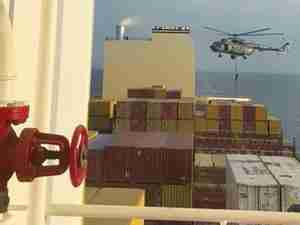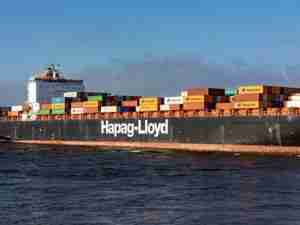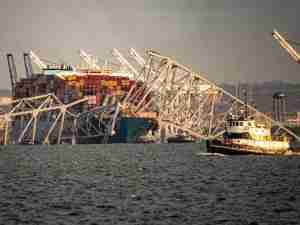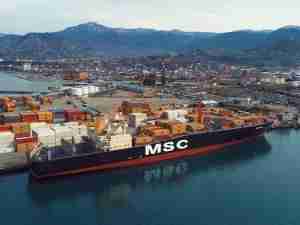The Danish conglomerate, whose Maersk Line is the world's biggest container shipping company and therefore a barometer of world trade, forecast full-year 2011 net profit in a range of $3.1 billion to $3.5 billion including divestment gains.
That compared with a profit of $5.02 billion for 2010.
"In the container business, we are hit by very low rates," Chief Executive Nils Smedegaard Andersen told Reuters. "That is a consequence of the fact that the peak season did not develop the way the market expected.
"There has simply been too much capacity in the market and there still is."
Andersen said the group's results were a mixed bag, with good results in the core businesses other than Maersk Line.
"We think that for a group of our size there will be plenty of opportunities also in shipping as this crisis -- I am talking about a capacity crisis -- unfolds further," he said.
He said capacity would need to be taken out of the market for rates to recover.
Andersen said Maersk was boosting its competitiveness and the market was likely to stabilise when some smaller and less financially solid shipping companies quit the business.
Andersen said ships on order with shipyards are equal to 30 percent of the current world fleet, so it would take some years with growth and no further capacity expansion to bring the market back into balance.
"The smaller shipping companies, and all of us, must be prepared for the next two years to be very hard to get through," he said.
Net profit dropped to 1.92 billion crowns ($356 million) in July-September from 9.62 billion in the third quarter last year, A.P. Moller-Maersk said, falling short of an average expectation of 2.41 billion in a Reuters poll.
"The group's container (shipping) activities now expect a negative result for the full year as a consequence of lower rates on especially the Asia-Europe trade," said Maersk, whose earlier forecast was for a "modest positive result" for the container business.
Low Rates
Andersen said in a statement Maersk was headed for "a fairly satisfactory result for 2011" considering the very low container shipping rates.
But Sydbank analyst Jacob Pedersen said the full-year guidance was "on the weak side."
Container shipping fell to an operating loss of 1.18 billion crowns in the third quarter from an operating profit of 6.65 billion a year earlier, below analysts' average expectation of a loss of 962 million.
Maersk's container volumes increased by 16 percent and average rates declined by 12 percent despite a 48 percent increase in bunker fuel prices from the third quarter of 2010.
The global container shipping industry, which rebounded in 2010 from a deep plunge in 2009, has slid back into trouble this year as overcapacity has dragged freight rates lower, fuel costs have risen and demand uncertainty clouds the horizon.
Andersen said freight rates were significantly below 2010 levels, though above those of 2009. But he said that when the rise in bunker fuel costs is taken into account, rates were almost at the same levels as in the disastrous 2009. (Reuters)









